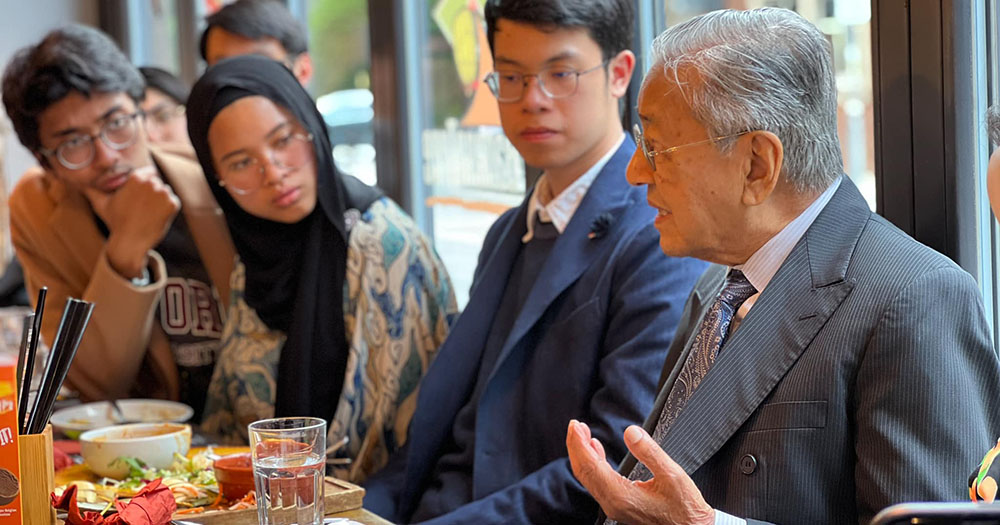Follow us on Telegram for the latest updates: https://t.me/mothershipsg
The former prime minister of Malaysia, Mahathir Mohamad spoke to Malaysian students at Oxford University for the second time.
Mahathir touched on the rule of law issue and used Pedra Branca as an example.
He noted that the matter of Pedra Branca, which he described as "a rock" in his post, was taken to the International Court of Justice (ICJ).
The court then decided that the rock belonged to Singapore, Mahathir noted.
He added, "That’s okay, it’s only a rock."
As for Malaysia's issue with Indonesia, he noted that the two islands now belong to Malaysia instead of Indonesia, referring to the dispute over the Sipadan and Ligitan islands.
According to the South China Morning (SCMP), the ICJ awarded these two islands to Malaysia in 2002, but did not determine the maritime boundary in the surrounding waters.
This was followed by protests in Indonesia in 2005 when Malaysia's state-owned oil and gas firm Petronas granted Shell exploration rights in and around the Sipadan and Ligitan Islands, encroaching on a disputed body of water known as the Ambalat area.
This dispute subsequently led to a military standoff between Malaysia and Indonesia.
Mahathir: But no war broke out from these issues
In citing these two issues, Mahathir highlighted that no war, damages or killing had broken out.
He said, "Like civilised people we have the rule of law and we obey the rule of law by going to the courts to settle our problems."
Malaysia can therefore serve as an example, he added.
"When we have problems with our neighbours, we resolve those problems through negotiation, arbitration or going to a court of law so that we don’t do damage to each other, we don’t kill each other and yet we solve the problems that arose because of overlapping claims of territories," he said.
He then touched on the Russia-Ukraine war and the folly of killing people to resolve conflicts.
The former prime minister also stressed that he was against war because it is uncivilised and resolves nothing.
Even so, it appears "we are addicted" to war as a solution to problems, he noted.
Universal values
Mahathir then highlighted that the end of World War 2 saw the victorious Allies turn on one another, with the West deciding that the next enemy would be Russia.
This resulted in the Cold War, he said, which has set the stage for the current tension and war between Russia and other Western powers.
Mahathir elaborated:
"And now that we have the West regarding Russia, China and Iran as their enemies. And tons of money have been spent on inventing new weapons in order to kill people more efficiently. I don’t think that is a good thing.
We could spend that money, trillion of dollars, on dealing with the climate change, on dealing with the pandemic but not on killing people."
He also touched on the recent school shooting in the U.S. state of Texas, which saw 21 fatalities.
Here, Mahathir said that regardless of whether the argument that people, not guns, that kill is true, the time has come to rethink what is considered universal values.
Priority should be global warming
Mahathir's pointed out that the world is undergoing global warming and experiencing more severe weather.
In criticising what he saw as a lack of priority on this issue, Mahathir noted, "We should be focusing on that but we are not. We are more interested in the East and the West. We still think that the problem that we should spend our time on is to deal with enemies."
He subsequently called on young people to not emulate the ways of their predecessors or older people.
"I mean young people should think more about how to be peaceful and to tackle the real problems of this world. But apparently, we are not focussed on that. We acquire knowledge in the schools and universities but we are not taught on how to make use of the knowledge. We can always abuse the knowledge that we gained," he said.
Top photo via Mahathir Mohamad Facebook
If you like what you read, follow us on Facebook, Instagram, Twitter and Telegram to get the latest updates.
